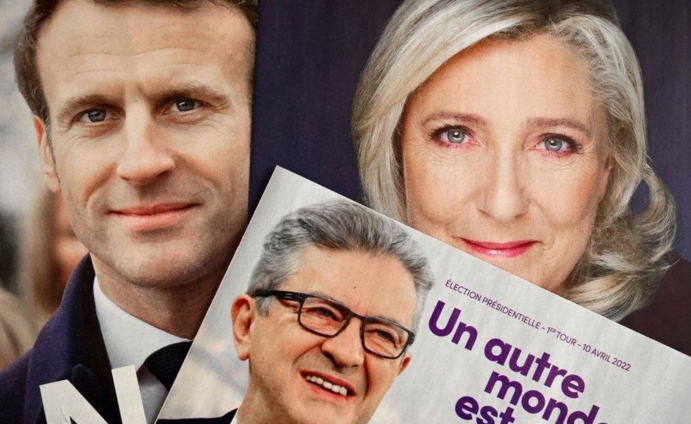French voters are casting their ballots in the opening round of a presidential race that could become a cliffhanger.
Emmanuel Macron has a fight on his hands from far-right challenger Marine Le Pen, who has been galvanised by a slick election campaign.
Forty-nine million people are eligible to decide which two of 12 candidates should take part in the run-off vote.
The president spent little time on the race, focusing instead on Europe's reaction to Russia's war in Ukraine.
One issue more than any other has predominated this election: the spiralling cost of living in energy bills and shopping baskets.
When he came to power with a new party in 2017, Emmanuel Macron swept away the old allegiances, and the two big parties are still nursing their wounds.
Socialist candidate Anne Hidalgo has struggled to be heard, while on the right Valérie Pécresse has failed to excite the Republicans.
Now, the main challenge to Mr Macron, 44, is coming from Ms Le Pen on the far right and Jean-Luc Mélenchon on the far left.
Some are even predicting the president could lose.
'I still don't know who to vote for'
Voting began at 08:00 (06:00 GMT) in mainland France and ends in the big cities of Paris, Lyon and Marseille at 20:00 local time. What adds to the uncertainty is that days before the vote, one Ipsos opinion poll suggested 37% of people were still undecided.
First the Covid-19 pandemic and then Russia's invasion overshadowed this election.
"The campaign's been going on for two months and there hasn't been much debate," complains Ourdia, a café owner in north-west Paris. "I still don't know who to vote for."
Cost of living crunch
The French economy is in decent shape and unemployment has fallen to 7.4%, but voters are not feeling the benefit.
That's because prices are going up across the board, at the shops, the market, the petrol pump and in domestic energy bills. The phrase you hear everywhere is pouvoir d'achat - which translates as spending power but is better known in English as the cost of living.
Thierry, who lives outside Paris and runs a shoe stall, says prices have gone through the roof. "The cost of shoes has gone up by 20% to 30% and all the taxes have gone up too," he points out.
That is why many of the candidates are promising to boost the minimum wage, in some cases by hundreds of euros. It's due to go up at the start of May to about €1,300 (£1,100; $1,430) a month after tax.
Latest Stories
-
Mahama proposes ceremony to honour Agya Koo Nimo
5 minutes -
Blackstar Experience: Government’s flagship programme for tourism, culture and creative arts launched
53 minutes -
COCOBOD probes $263 million cocoa rehabilitation loan disbursement
1 hour -
COCOBOD CEO reveals plans to protect cocoa farms from miners
2 hours -
Afenyo-Markin accuses Council of State of complicity in Chief Justice’s suspension
4 hours -
PHOTOS: President Mahama applauds workers on May Day
4 hours -
Zoomlion Ghana responds to contractual engagement with Youth Employment Agency
5 hours -
INTERPOL targets stolen vehicle trafficking in West African police operation
5 hours -
Brazil extend Ancelotti deadline amid Madrid standoff – sources
5 hours -
Next round of Iran-US nuclear talks postponed
5 hours -
From ‘Otwebompitil” to the Supreme Court; congratulations, my lord Justice Kweku Tawiah Ackaah-Boafo
5 hours -
Clooney gets Tony nomination for Broadway debut
5 hours -
Our wage situation has worsened – TUC to Mahama
5 hours -
5th May demo not about NPP but judicial independence – Afenyo-Markin
5 hours -
NPP National Chairman hasn’t abandoned ‘Thank you’ tour – Justin Kodua
5 hours

